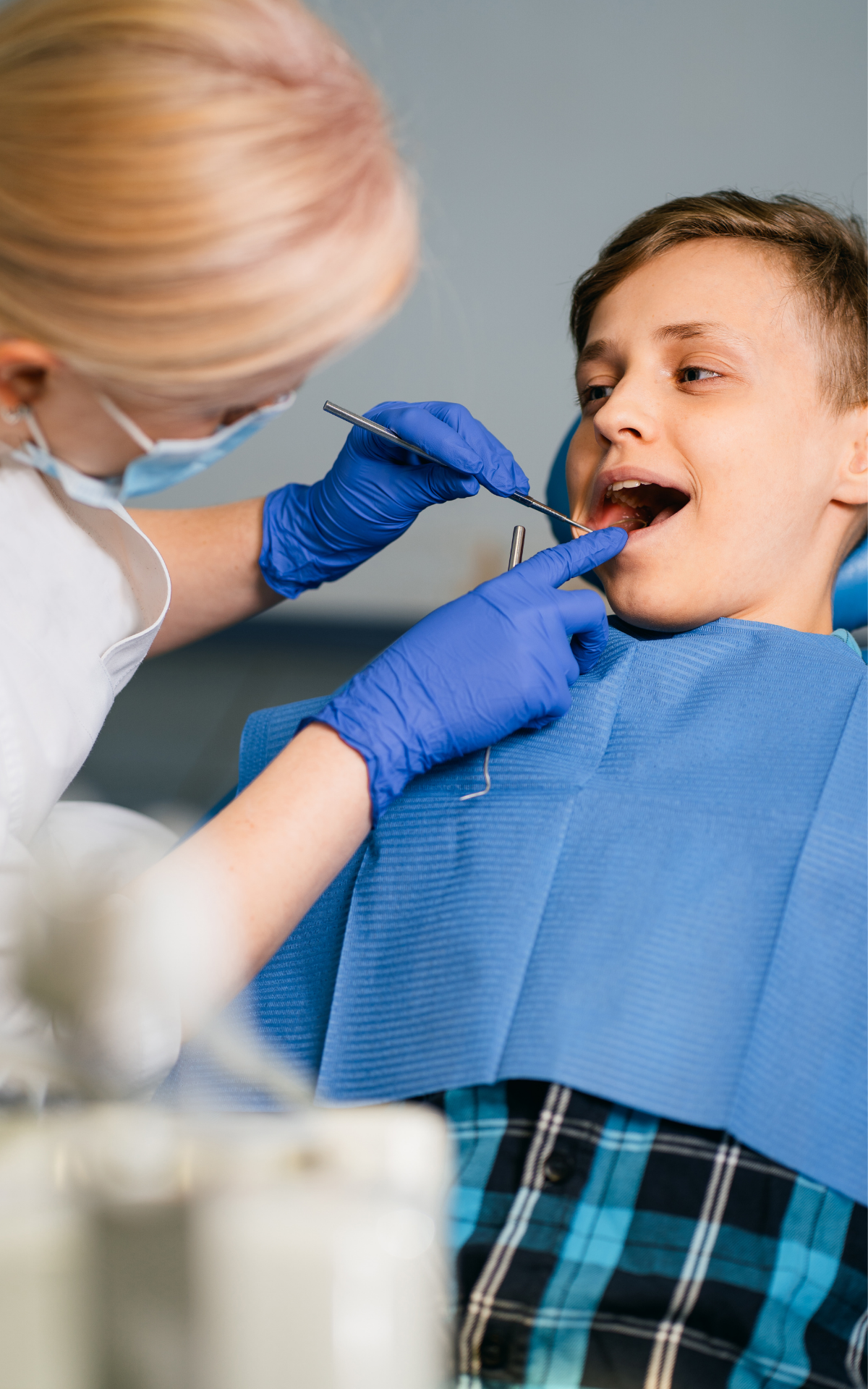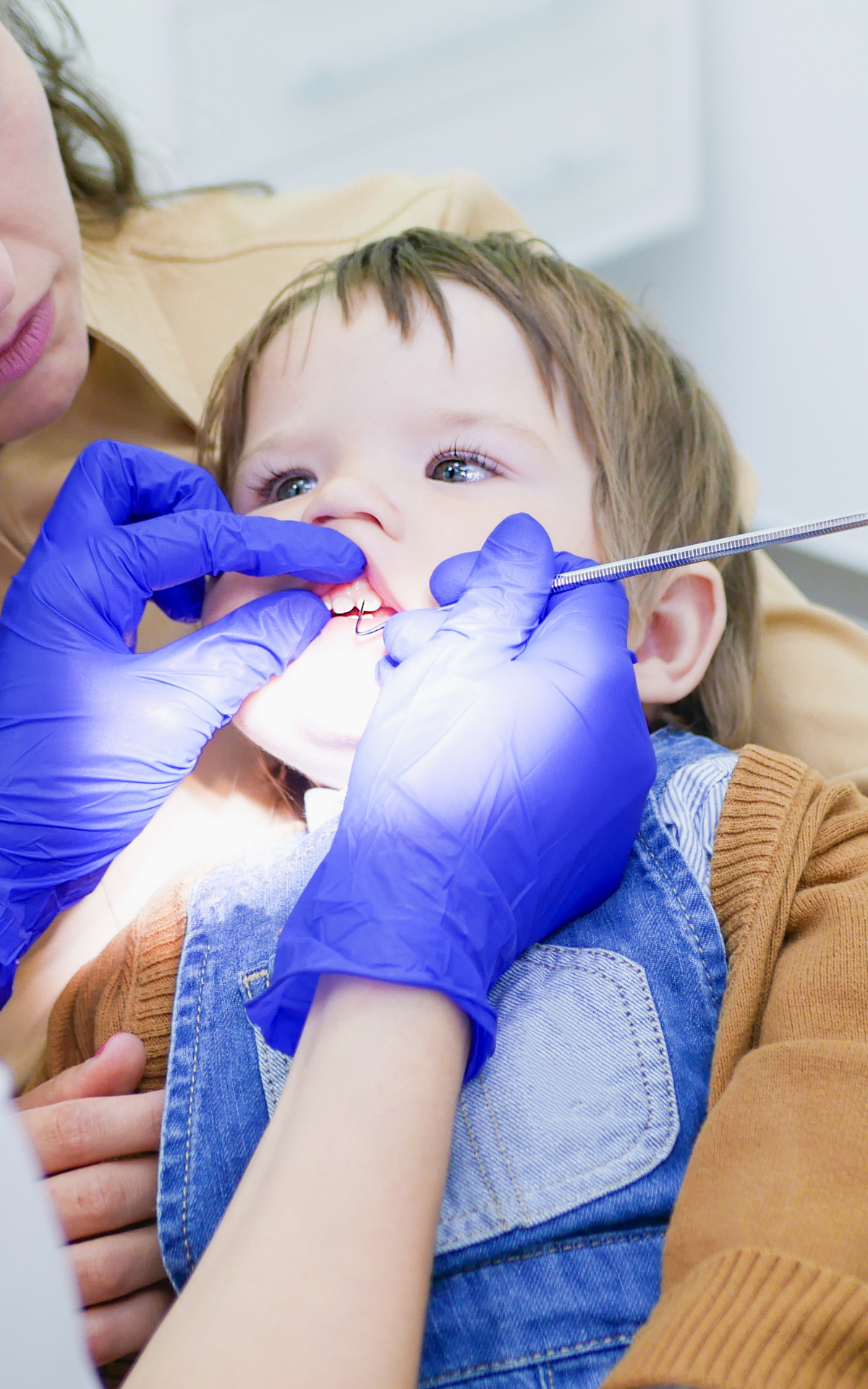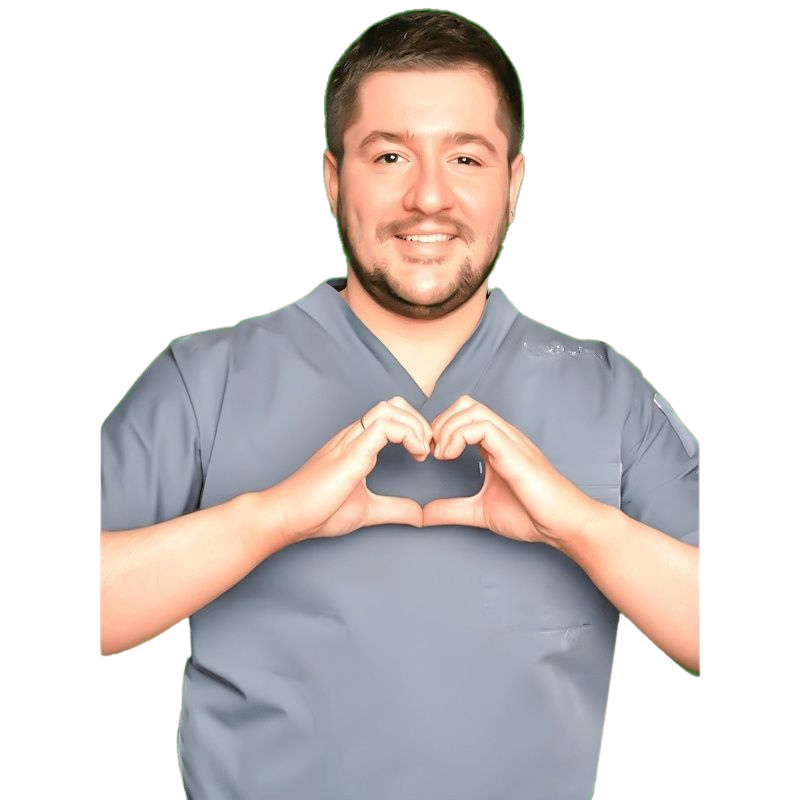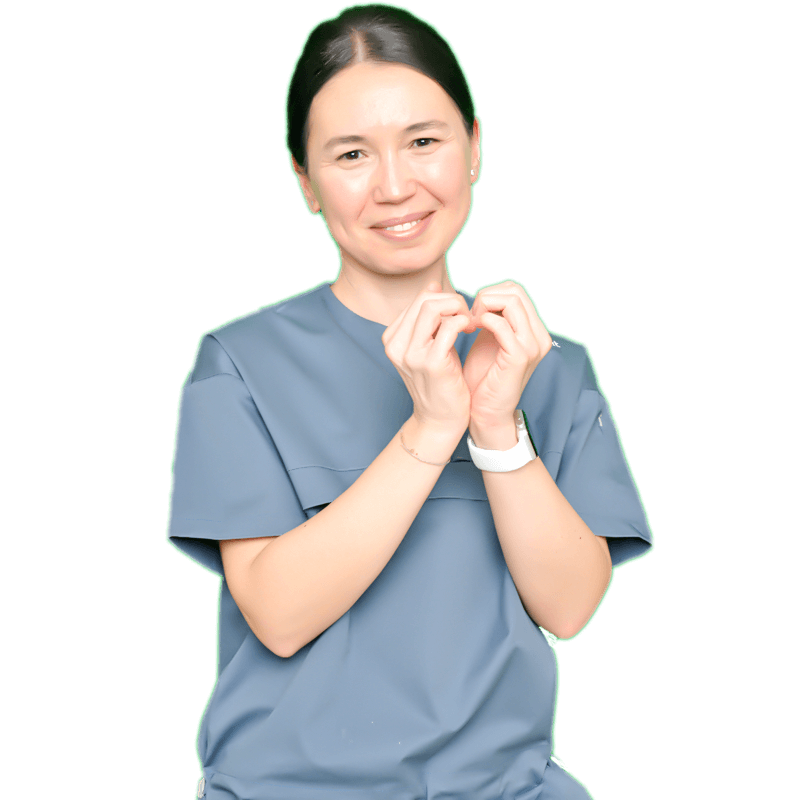PEDODONTICS
Make an Appointment
Online Schedule
IntroductionWhat can be done to prevent baby bottle decays?
Foods that are ingested with a baby bottle should include no sugar. Lactose in milk can cause caries even if no additional sugar is provided. Following bottle feeding, the kid should drink water and have their mouths cleaned with a cloth until they are 6 months old, and then with a special tooth brush after that.
If the child’s teeth fall as a result of impact, what should be done?
You should first speak with a dentist. If the missing tooth is a milk tooth, a temporary filling can be used. In cases of fractures, several treatments, ranging from dental fillings to root canal treatment, may be necessary depending on the tissues affected by the fracture. If it is a permanent tooth and has fallen out without any damage, implantation to its previous place can be attempted right away after the accident.
How do I know my child is in need of braces?
After age two, you should start bringing your kids to the dentist on a regular basis. Orthodontist controls are where a decision can be taken.
Treatments during the year
Treatments during the year

IntroductionHow to choose a toothbrush for children?
For kids of a specific age, many different companies provide a variety of brushes. As long as the brush is appropriate for the child’s age, purchasing one of them is sufficient. The dentist may suggest more specialized brushes if your child has a particular condition (for instance, use of an orthodontic device).
When should I start brushing my child’s teeth?
Once your children’s teeth start to come in, you can use a toothbrush (without toothpaste) (6 months). For these times, there are specific tooth brushes on the market. These brushes help children who are teething reduce their irritation. Children should clean their teeth with adult supervision; they should not be left unattended.
What you need to do in order to have your children got used to dentist?
First of all, exposing your child to the dentist on a regular basis will help them get used to it. It would be a good fit between the doctor and the child because the preventive measures taken during these sessions won’t harm the child. Parents shouldn’t let their concerns show in front of their kids.
How do I make my child’s diet safe for his teeth?
To achieve a robust oral health, your child has to consume foods with a high mineral balance. Regular consumption of milk, yogurt, cheese, eggs, and vegetables is advised.
What are the individual measures to be taken to prevent the formation of dental decays?
When used in conjunction with fluorinated mouthwashes, application of fissure sealant to the chewing surfaces of molars will both stop the development of decay and reduce the incidence of dental decays if there is no existing decay. The degradation, however, continues unabated.
When the children start brushing teeth?
- The baby should be cleaned when they are 6 to 8 months old (ie, the first teeth appear in the mouth).
- After breakfast and before going to bed at night, it would be appropriate to brush your teeth (at least the chewing surfaces) with a damp cloth or piece of gauze.
- After the child’s back teeth erupt, it would be OK to begin using a toothbrush (average 2.5 to 3 years old).
- At this age, it’s crucial that kids form the habit of brushing their teeth. Children frequently wash the teeth’s exposed or accessible surfaces.
- It is exceedingly challenging to instill a dental hygiene routine in preschoolers. To stop decay, however, the chewing and contact surfaces of the teeth must be cleared considerably better. Therefore, after brushing, parental control would be good.
How to choose a toothbrush for children?
- It is best to use brushes with soft nylon bristles that fit a child’s mouth.
- Hard brushes should not be used as they will harm teeth.
- As soon as the bristles of a brush become worn, it must be replaced (average 3-4 months).
Which and how much toothpaste should be used for children?
- It is not advised to use toothpaste on infants or young children under the age of three.
- After age three, children should begin using toothpaste. A “roasted chickpea” amount of toothpaste would suffice as opposed to the 3-5 cm. of toothpaste that you can see in advertising.
- Any fluoride toothpaste may be used during the toothpaste-using period.
- What matters is that the child like the flavor of the toothpaste and experiences desire.
- It is crucial to remember that brushing effectively matters considerably more than using toothpaste.
- How often should my youngster wash his or her teeth each day?
- A three-minute, efficient brushing is sufficient after breakfast and at night before bed.
- Brushing habits are formed in early childhood, just like any other excellent habit.
PREGNANCY PERIOD
- If a pregnancy is intended, a dental examination should be done.
- Possible decay cavities must be ruled out using radiographic testing in addition to the clinical evaluation.
- Unerupted wisdom teeth, teeth with issues at the base from previous root canal treatments, gum disease, etc., are all examples of infection foci that need to be properly recognized and treated.
- A plan should be made for oral hygiene. By doing this, measures can be made to prevent eating problems and sickness from damaging teeth and gums, which are frequently seen in the first few months of pregnancy.
Is it possible to have dental treatment during pregnancy?
Yes. Pregnancy is assessed as three distinct phases for oral and dental care: the first three-month period, the second three-month period, and the third three-month period. Treatment is typically not chosen throughout the first and last three months of pregnancy unless it is required. However, under the supervision of a gynecologist, dental treatments can be performed in cases of emergency, such as severe tooth pain. All sorts of treatment can be made by taking the essential steps during the second three-month period of pregnancy, between the third and sixth months.
Why oral and dental cares during pregnancy are important?
Being under the care of a dentist while pregnant is advantageous. Dental and gum disorders can be prevented in this way. Hormonal changes, a mouth’s acid-base imbalance, and morning sickness during pregnancy make teeth and gums more prone to illnesses and make oral hygiene challenging. During pregnancy, gingival expansion and gingivitis might be noticed. Regular tooth brushing and interface cleaning are required to prevent this condition. Additionally, calculus cleaning should be carried out if necessary. What steps should be taken to maintain dental and oral health when pregnant? Calculus cleaning is a preventative strategy against pregnancy gingivitis and gum expansion brought on by a shifting hormonal balance later in pregnancy if a dental exam is performed after pregnancy. Between the fourth and sixth months of pregnancy, if dental decays are found during the inspection, they should be treated. However, it should be remembered that tooth and gum infections would be more harmful to the unborn child than dental therapy. The dentist and gynecologist should make this choice. When essential for dental care during pregnancy, radiographic examinations can be performed using lead aprons.
Does the use of antibiotics during pregnancy can harm your teeth?
Pregnancy-related medications, particularly those containing tetracycline, are known to harm the baby’s teeth and cause an irreversible color change. Many antibiotics can be used readily with the dentist and gynecologist’s consent today when antibiotic therapy is required.
Vaccination & Testing
Our Hospital provide the highest quality care to improve the health of our entire community through innovation, collaboration, service excellence, diversity and a commitment to patient safety









